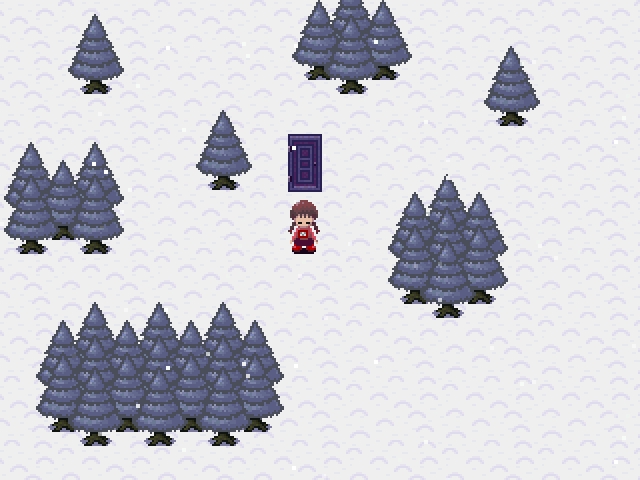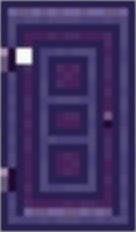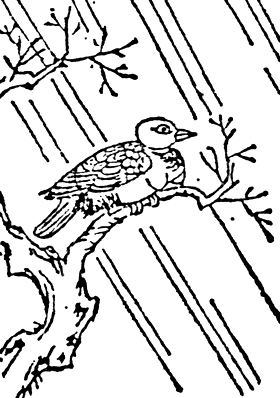>Mt.kiki No edit summary |
>Mt.kiki No edit summary |
||
| Line 117: | Line 117: | ||
In addition, we also have contact with "姑獲鳥", to ask me to talk to the man standing holding a child holding a child ("雪ん子") on the night of the snowstorm, is transmitted through. And embrace the child, the child becomes more and more serious, is that people freeze to death and buried in snow [3]. | In addition, we also have contact with "姑獲鳥", to ask me to talk to the man standing holding a child holding a child ("雪ん子") on the night of the snowstorm, is transmitted through. And embrace the child, the child becomes more and more serious, is that people freeze to death and buried in snow [3]. | ||
[[File:Yuki-onna.png|thumb|If | [[File:Yuki-onna.png|thumb|If "Kamakurako" is "雪ん子", She is a child (embryo who is in a belly) of "Madotsuki(Yuki-onna)"? | ||
]] | ]] | ||
Revision as of 08:08, 8 March 2013
Snow World(Liturgical colours)
※Snow world's door is Liturgical colours Purple(Advent&Sacrament) and White(Christmastide&Easter Season)?
Post-1969 Rubrics
In the Roman Rite, as reformed by Pope Paul VI, the following colours are used.[1]
| Color | Obligatory Usage | Optional Usage (in lieu of prescribed obligatory colour) |
|---|---|---|
| Violet |
|
|
| White |
|
|
Snow World(Advent)
1 Traditions 1.1 Liturgical Colors
See also: Liturgical colours
The usual liturgical colour in Western Christianity for Advent is either purple or blue.[4] The purple color is often used for hangings around the church, the vestments of the clergy, and often also the tabernacle.
Proponents of this new liturgical trend argue that purple is traditionally associated with solemnity and somberness, which is fitting to the repentant character of Lent. On the 3rd Sunday of Advent, Gaudete Sunday, rose may be used instead, referencing the rose used on Laetare Sunday, the 4th Sunday of Lent.
※Relevance of "Advent" and "Easter"
http://yumenikki.wikia.com/wiki/Effects(name)#Effects.28Easter_egg.29
Yuki-onna(Yuki-onna)
Yuki Onna (雪女?, snow woman) is a spirit or yōkai in Japanese folklore. She is a popular figure in Japanese literature, manga, and animation.
Yuki-onna appears on snowy nights as a tall, beautiful woman with long black hair and blue lips. Her inhumanly pale or even transparent skin makes her blend into the snowy landscape (as famously described in Lafcadio Hearn's Kwaidan: Stories and Studies of Strange Things). She sometimes wears a white kimono,[3] but other legends describe her as nude, with only her face and hair standing out against the snow.[4]
In many stories, Yuki-onna appears to travelers trapped in snowstorms, and uses her icy breath to leave them as frost-coated corpses. Other legends say she leads them astray so they simply die of exposure. Other times, she manifests holding a child. When a well-intentioned soul takes the "child" from her, they are frozen in place.[3]
Yuki-onna(雪女)
2 逸話 (2 Anecdote of Yuki-onna)
また、姑獲鳥との接点も持っており、吹雪の晩に子供(雪ん子)を抱いて立ち、通る人間に子を抱いてくれと頼む話が伝えられる。その子を抱くと、子がどんどん重くなり、人は雪に埋もれて凍死するという[3]。
In addition, we also have contact with "姑獲鳥", to ask me to talk to the man standing holding a child holding a child ("雪ん子") on the night of the snowstorm, is transmitted through. And embrace the child, the child becomes more and more serious, is that people freeze to death and buried in snow [3].
Kamakurako(雪ん子)
雪ん子(ゆきんこ)
Children of Yuki-onna (Yuki-n-ko)
- accuracy of snow appearance of a child. Doji Snow (Yukiwarashi)
- Children of Yuki-onna specter of Japan. See story # fairy.
Toriningen(姑獲鳥)
江戸時代初頭の日本では、日本の伝承上の妖怪「産女」が中国の妖怪である姑獲鳥と同一視され、「姑獲鳥」と書いて「うぶめ」と読むようになったが、これは産婦にまつわる伝承において、産女が姑獲鳥と混同され、同一視されたためと見られている[4]。





